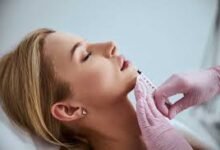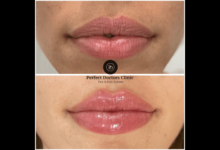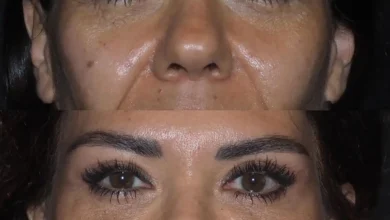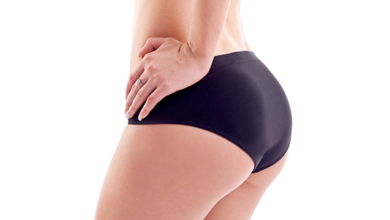
Effective Strategies for Managing and Reducing Hormonal Acne
Hormonal acne is a common concern that affects many people, especially adults and teenagers. Unlike regular acne, hormonal acne is often linked to fluctuations in hormones, which can stimulate excess oil production, clog pores, and lead to breakouts. Dealing with hormonal acne can be frustrating, but it often respond well to traditional isotretinoin 20mg over-the-counter treatments. However, understanding the causes and exploring effective methods to manage it can make a significant difference. This guide will delve into proven ways to reduce hormonal acne and achieve clearer skin.
Understanding Hormonal Acne
Hormonal acne, often categorized as “adult acne,” occurs when there are imbalances in hormone levels, typically in estrogen, progesterone, and testosterone. These fluctuations are common during menstruation, pregnancy, menopause, or periods of high stress. Hormonal acne usually appears around the jawline, chin, and neck but can also show up on the cheeks and forehead.
Key factors that contribute to hormonal acne include:
- Excess sebum production: Androgens (male hormones present in both men and women) can increase oil production, clogging pores.
- Inflammation: Hormonal changes can lead to inflammation, resulting in red, painful breakouts.
- Bacterial growth: The bacteria Propionibacterium acnes thrives in clogged pores, further aggravating acne.
How to Get Rid of Hormonal Acne
Here are some effective strategies for managing and reducing hormonal acne naturally and medically:
1. Adopt a Hormone-Balancing Diet
What you eat has a major impact on your hormone levels and skin health. To support balanced hormones, consider the following dietary changes:
- Limit sugar and refined carbs: High-sugar and refined-carb diets can spike insulin levels, indirectly triggering androgen production and worsening acne. Focus on whole grains and low-glycemic foods like oats, quinoa, and sweet potatoes.
- Incorporate omega-3 fatty acids: Omega-3-rich foods, like salmon, chia seeds, and walnuts, can help reduce inflammation in the body and are beneficial for hormone regulation.
- Consume plenty of fiber: Fiber aids digestion and helps remove excess hormones, particularly estrogen, from the body. Vegetables, fruits, and whole grains are excellent fiber sources.
2. Consider Natural Supplements
Certain supplements may help regulate hormones and improve skin health. Always consult with a healthcare professional before starting new supplements. Some commonly recommended options for hormonal acne include:
- Zinc: Zinc is known for its anti-inflammatory and antibacterial properties, which can help reduce the severity of acne.
- DIM (Diindolylmethane): Found in cruciferous vegetables like broccoli and kale, DIM can help balance estrogen levels, potentially reducing acne linked to hormonal imbalances.
- Vitamin D: Low levels of vitamin D are associated with acne severity, and maintaining adequate levels may help reduce breakouts.
- Probiotics: A healthy gut supports balanced hormones, and probiotics can improve digestion, strengthen the immune system, and reduce inflammation.
3. Adopt a Consistent Skincare Routine
Maintaining a gentle but effective skincare routine can help manage hormonal acne without over-drying or irritating the skin. Here’s a basic skincare routine for acne-prone skin:
- Cleanser: Use a gentle, sulfate-free cleanser that targets acne-causing bacteria and removes excess oil. Avoid harsh scrubs, as they can aggravate inflammation.
- Exfoliants: Use chemical exfoliants like salicylic acid or glycolic acid once or twice a week. These help unclog pores and reduce the buildup of dead skin cells that can lead to acne.
- Moisturizer: Choose a lightweight, non-comedogenic moisturizer to keep your skin hydrated without clogging pores.
- Sun Protection: Apply sunscreen daily, as many acne treatments can make the skin sensitive to UV rays. Opt for a non-comedogenic, oil-free sunscreen.
4. Try Over-the-Counter and Prescription Treatments
For more severe hormonal acne, over-the-counter and prescription treatments can be effective. Consult a dermatologist for guidance on the best options for your skin type and acne severity:
- Benzoyl Peroxide: Known for its antibacterial properties, benzoyl peroxide can help reduce the bacteria responsible for acne.
- Retinoids: Topical retinoids can unclog pores and promote cell turnover, reducing acne and helping to prevent new breakouts. However, retinoids can be drying, so start with a lower concentration.
- Birth Control Pills: Certain oral contraceptives are FDA-approved to treat hormonal acne. They work by regulating hormone levels and reducing sebum production.
- Anti-Androgen Medications: Medications like isotretinoin 40 mg work by blocking androgen receptors, which can reduce oil production and prevent acne.
5. Manage Stress Levels
Stress is a major contributor to hormonal imbalances, which can exacerbate acne. Implementing stress management techniques can help balance hormones and prevent acne flare-ups:
- Practice Mindfulness and Meditation: Techniques like deep breathing, meditation, and yoga can help lower cortisol (the stress hormone) levels and keep your skin clear.
- Regular Exercise: Exercise is a natural stress reliever and supports healthy blood flow, which can help nourish the skin. Aim for a mix of cardiovascular exercises, strength training, and flexibility exercises for optimal results.
- Ensure Quality Sleep: Poor sleep quality or inadequate sleep can increase stress hormones, affecting both skin and hormone balance. Aim for at least seven to eight hours of sleep per night.
6. Avoid Common Triggers
Avoiding certain triggers can help prevent hormonal acne flare-ups. Here are some common triggers and ways to avoid them:
- Dairy Products: Dairy, especially skim milk, has been linked to acne outbreaks in some studies. Try reducing or eliminating dairy to see if it makes a difference.
- High-Glycemic Foods: Foods that spike blood sugar can contribute to hormonal imbalances, making acne worse. Limit foods like sugary snacks, white bread, and soda.
- Heavy Makeup Products: Heavy, pore-clogging makeup can exacerbate acne, especially if worn for long periods. Opt for non-comedogenic, breathable makeup that’s suitable for sensitive or acne-prone skin.
7. Explore Hormone Therapy
For persistent cases of hormonal acne, hormone therapy may be an option. This is usually recommended only for severe cases or when other treatments haven’t worked:
- Oral Contraceptives: Certain birth control pills help regulate hormones, decreasing androgen levels and oil production.
- Anti-Androgens: Medications like spironolactone specifically target androgens, reducing their effect on sebaceous (oil) glands.
Always work closely with a dermatologist to determine the best therapy plan for you.
Conclusion
Getting rid of hormonal acne takes a multi-faceted approach that includes diet, skincare, stress management, and possibly medication. Remember that everyone’s skin is different, and what works for one person may not work for another. Finding the right combination of treatments and lifestyle changes takes time, patience, and consistency. By maintaining a healthy lifestyle, practicing good skincare habits, and working with healthcare providers, you can effectively manage hormonal acne and achieve healthier, clearer skin.







